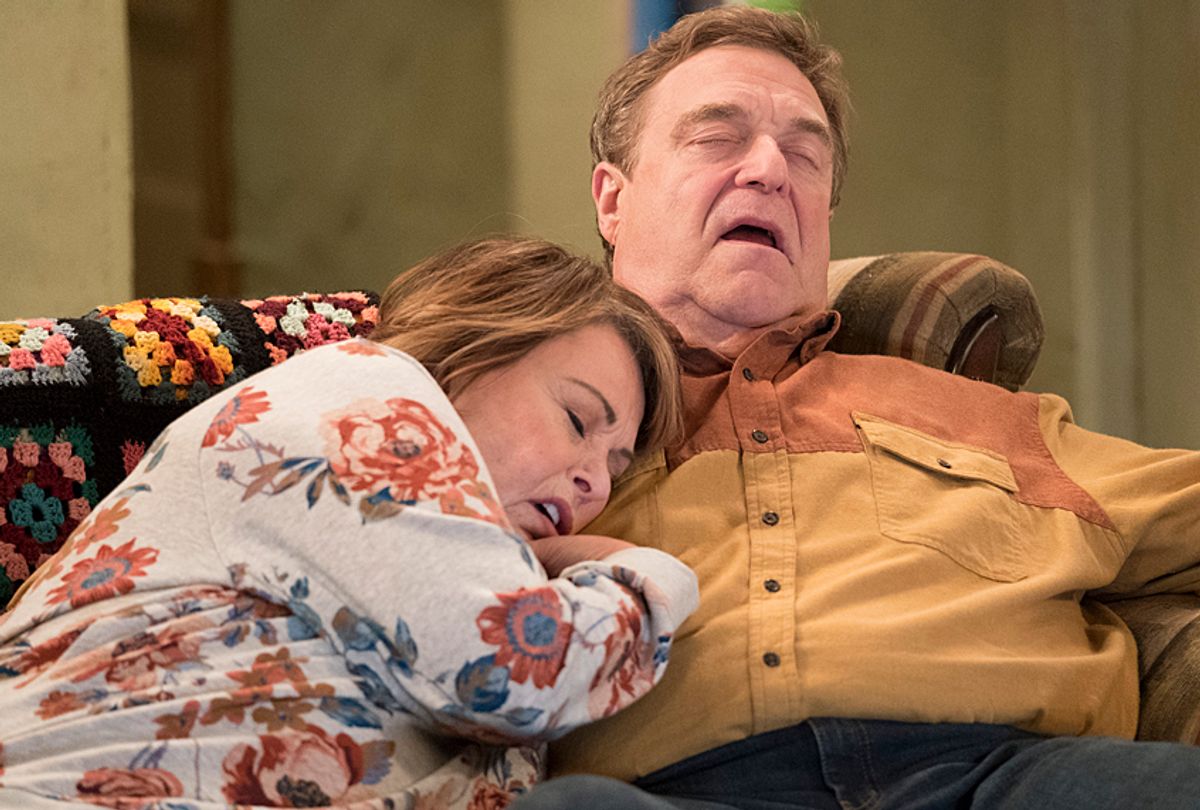The new "Roseanne" series has been getting much acclaim, but the way the show addresses opioid addiction will not help the Connor family or any of the millions of families watching across the country. Roseanne’s use of painkillers to address her ongoing knee pain spirals out of control and results in the type of crisis facing many U.S. families today. The episodes (thankfully) do not attempt the stereotypical Hollywood-style resolution in 30 minutes, neither do they propose the type of approach that would allow the title character to get the help she needs.
What did the Connor family get wrong?
First, we see Roseanne’s husband Dan (John Goodman) respond emotionally (understandably) to his wife’s behavior. Driven by a physiological condition, an addicted person’s behavior often leads him or her to act in certain ways, causing friends and family members to behave in ways that are not only inconsistent with getting a person help but also potentially harmful. The Conner family expends lots of energy trying to figure out who has been using the missing opioid pills — when the answer is right in front of them all along. Rather than looking for a treatment option for his wife, Dan resorts to serving as a dispensary and doling out one pill every six to eight hours, not knowing that Roseanne has stashed a private supply of her own in her icepack. Dan’s well-meaning but misguided effort could easily have tragic results if the pills he provides to his wife are combined with those that she has hidden for herself. Obituaries and death certificates tragically contain the phrase “accidental overdose” due to situations just like this one.
Second, with this disease/disorder, people often try what has been referred to as "self-treatment," rather than seeking out appropriate care. We see things like parents grounding their kids, children flushing their parents’ cigarettes or alcohol (or other drugs), etc. The point here is that people need to seek help for a substance use disorder from professional providers — not try to handle the problem themselves through a show of force or discipline. Imagine if we tried that approach with diabetes or high cholesterol. For example, a parent I heard speak recently who had served on a non-profit board of an addiction treatment agency shared that when he learned of his child’s heroin addiction, his first step was not to help his child get help but to purchase $1,000 worth of drug testing kits to try to impose abstinence.
Finally, there are major issues with a health care system when people have to figure out how to get the $3,000 deductible noted in the show that would have been required to allow Roseanne to have the knee operation she needs. One generation down, Roseanne’s daughter is pressured to take a less-than-desirable job to qualify for health insurance. Desperation may be a tremendous motivator, but should it be the driving force in an individual’s choice of employment simply because health benefits are offered?
What is needed to get an addicted person help?
The first thing is a complete revamping of how we view addiction. It is not a moral issue, although those who are addicted may indeed do “immoral” things. It is not a character flaw, although people in recovery do work on improving themselves. It is not something we can address solely through tougher laws, although appropriate laws are clearly needed.
It is a public health problem. We need accessible, affordable, evidence-based treatment for those with a substance use disorder. If each community in this country had treatment on demand, people like Roseanne’s character could access the care they need, when they need it. Instead, we are plagued with no bed availability, waiting lists, arbitrary and discriminatory policies against medication-assisted treatment and other roadblocks to care that simply do not exist for more “mainstream” maladies.
There are two important components to address this critical problem: access to care and an adequate delivery system. Access is largely a financial issue, as the Roseanne episodes clearly show. Whether it be a single-payer system, expanded Medicaid or some other structure, people must be able to get the help they need without having to wait needlessly or figure out how to get the money to afford treatment. The current delivery system is flawed in that services at varied levels of care (outpatient, residential, medication-assisted) are not available in all communities. Enhanced access would drive the creation of more treatment options and provide the services that are so crucial to finding our way out of the current crisis.
Ironically, one of the ads aired during the final episode of "Roseanne" was a promo for an upcoming show titled "The Last Days of Michael Jackson." Stigma around addiction is alive and well — preventing individuals and families from responding to a physiological problem (addiction) in the way they would for any other such issue. Who knows if the King of Pop would still be with us if we had a more enlightened view of addiction and its treatment?
As we wait for the next season of "Roseanne," let’s hope the Conner family will consult with trained professionals to inform how they deal with their matriarch. What a great example it would be if she were to enter into a structured treatment regimen, manage her opioid withdrawal with appropriate oversight and enter into recovery. America deserves that, and Roseanne would join the millions of people in successful, stable recovery.



Shares